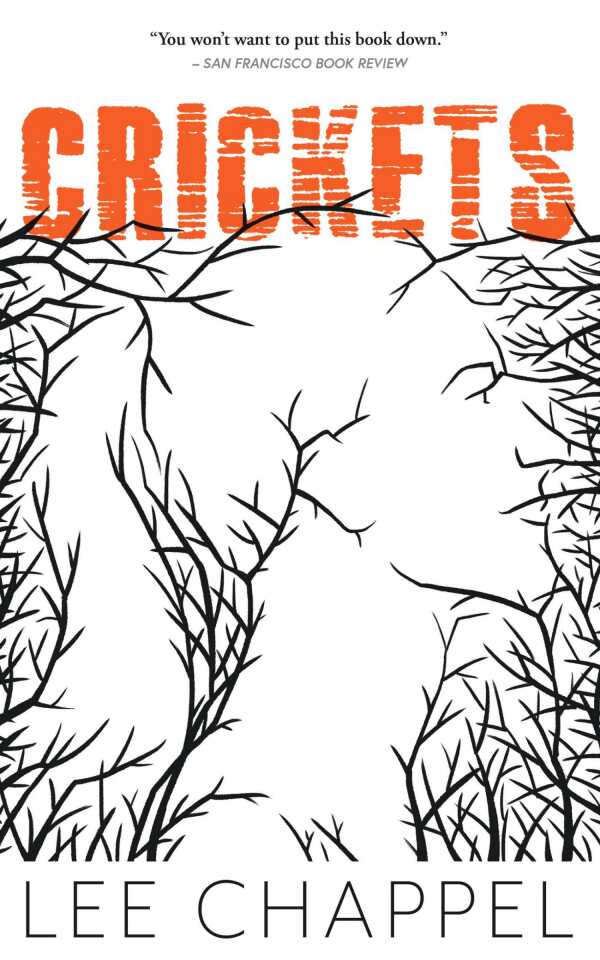Crickets
In Lee Chappel’s thriller Crickets, a woman is forced to confront her past, whose threats stretch into the present.
Kara fled Paige, Ohio, after she was raped by one of its prominent citizens. Her father’s sudden death forces her return to Paige, where everything reminds her of the terrible crime. She finds comfort in her best friend, while a new police officer, Sam (the only woman on the force), offers her some stability. But then menacing notes arrive, threatening to put Kara in peril once more. With trauma-induced panic making it hard for her to trust herself, Kara wonders if life will ever feel normal again.
The narration is split between Kara, Sam, and a few others. Each speaker lends context, sharing clues about the night of Kara’s rape and the political dynamics of the town. Kara’s psychological trauma manifests in missing time, panic attacks, and memory difficulties, which are rendered with authenticity and sensitivity. Still, most of the cast sides with Kara’s attacker, amplifying the difficulties and judgement that she faces as a survivor.
Kara struggles with awkward small talk and appearing at social events; her running monologue wavers from expressing emotional overload to a sense of dissociation. Meanwhile, Sam’s thoughtful consideration of Kara’s behavior, alongside her need to effect cunning, covert detective work, highlights the ingrained misogyny and problematic aspects of the police force.
Restrained reveals provide uncertainty and tension, dropping bits of information that challenge assumptions. Unpredictable and strange occurrences, like the sudden sound of crickets in Kara’s house, heighten the sense of danger; these are mixed with concern for Kara’s mental and physical health. The resolution is not a complete surprise, and hints about it increase toward the end; still, some motivations remain a mystery.
Crickets is a woman-led psychological thriller whose subtlety is its strength.
Reviewed by
Delia Stanley
Disclosure: This article is not an endorsement, but a review. The publisher of this book provided free copies of the book to have their book reviewed by a professional reviewer. No fee was paid by the publisher for this review. Foreword Reviews only recommends books that we love. Foreword Magazine, Inc. is disclosing this in accordance with the Federal Trade Commission’s 16 CFR, Part 255.

